August 8 stands as one of history’s most eventful days, witnessing the rise and fall of empires, groundbreaking discoveries, and moments that shaped our modern world across centuries of human achievement.

Politics and Government Events on August 8
1919 – Anglo-Afghan Treaty Signed Establishing International Borders
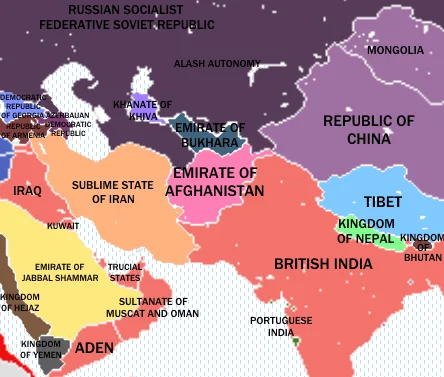
The Anglo-Afghan Treaty of 1919 established peaceful relations between Afghanistan and the United Kingdom. The agreement confirmed the Durand line as the mutual border between the two nations.
In return for recognition of sovereignty, the UK ended its financial subsidies to the Afghan government. This treaty marked Afghanistan’s full independence and established borders that remain contentious today.
1945 – London Charter Establishes Nuremberg Trial Framework

Four Allied powers signed the London Charter, creating the legal foundation for the Nuremberg trials. France, the United Kingdom, Soviet Union, and United States established unprecedented international justice procedures.
The charter defined crimes against peace, war crimes, and crimes against humanity. This groundbreaking document became the cornerstone of modern international criminal law.
1974 – President Nixon Announces Resignation
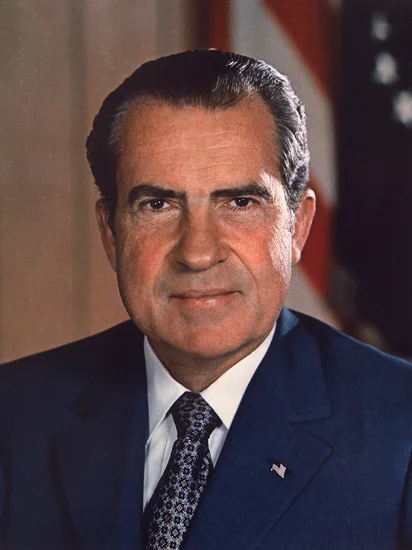
President Richard Nixon announced his resignation from the presidency in a nationwide television address. His resignation would take effect at noon the following day, ending the Watergate crisis.
Nixon became the first U.S. president to resign from office voluntarily. Vice President Gerald Ford assumed the presidency, marking a pivotal moment in American constitutional history.
1990 – Iraq Invades and Annexes Kuwait
Iraqi forces occupied Kuwait and declared the state annexed to Iraq. Saddam Hussein’s invasion triggered international condemnation and economic sanctions against Iraq.
The occupation lasted seven months and led directly to the Gulf War. Coalition forces eventually liberated Kuwait in 1991 after a massive international military response.
2024 – Muhammad Yunus Forms Interim Government in Bangladesh

Nobel laureate Muhammad Yunus took oath as Chief Adviser to form an interim government in Bangladesh. The renowned economist and social entrepreneur assumed leadership during a critical transitional period.
Yunus brought his expertise in microfinance and poverty alleviation to government service. His appointment represented hope for democratic renewal and economic reform in Bangladesh.
Military and Naval History on August 8
1918 – Battle of Amiens Launches Hundred Days Offensive
The Battle of Amiens began the final Allied push that would end World War I. British, Canadian, Australian, and French forces broke through German front lines in a coordinated assault.
This victory marked the beginning of the Hundred Days Offensive, a series of continuous Allied advances. The German Army never recovered from this devastating defeat on the Western Front.
1940 – Wehrmacht Issues “Aufbau Ost” Directive
Wilhelm Keitel signed the “Aufbau Ost” directive, outlining German military preparations for eastern expansion. This classified document detailed infrastructure and logistical planning for future operations.
The directive represented early planning stages for what would become Operation Barbarossa. German high command began systematic preparation for the invasion of the Soviet Union.
1946 – Convair B-36 Strategic Bomber Makes First Flight
The nuclear-capable Convair B-36 completed its maiden flight, becoming the heaviest mass-produced piston-engined aircraft. This massive strategic bomber represented American nuclear deterrent capabilities during the early Cold War.
The aircraft featured six pusher propeller engines and unprecedented range for intercontinental missions. Its first flight marked America’s commitment to maintaining nuclear superiority over potential adversaries.
2000 – Confederate Submarine Hunley Raised After 136 Years
The Confederate submarine H.L. Hunley was raised from the ocean floor after 136 years underwater. This historic vessel had been discovered 30 years earlier by undersea explorer E. Lee Spence.
The Hunley was the first submarine to successfully sink an enemy warship in combat. Its recovery provided invaluable insights into Civil War naval technology and submarine warfare development.
Science and Discovery Milestones on August 8
1929 – Graf Zeppelin Begins Historic Round-the-World Flight
The German airship Graf Zeppelin embarked on its ambitious round-the-world flight journey. This pioneering voyage demonstrated the potential of lighter-than-air aircraft for long-distance travel.
The airship completed its circumnavigation in 21 days, capturing global attention and imagination. This achievement marked the golden age of airship travel and German aeronautical engineering excellence.
1988 – Space Shuttle Columbia Launches Secret Military Mission
Space Shuttle Columbia launched on STS-28, a classified five-day military mission for the Department of Defense. The crew deployed a sophisticated reconnaissance satellite during this secretive operation.
This mission demonstrated the shuttle program’s dual civilian and military capabilities during the Cold War. Columbia’s successful deployment of defense satellites enhanced American intelligence-gathering capabilities.
2007 – Space Shuttle Endeavour Departs for International Space Station
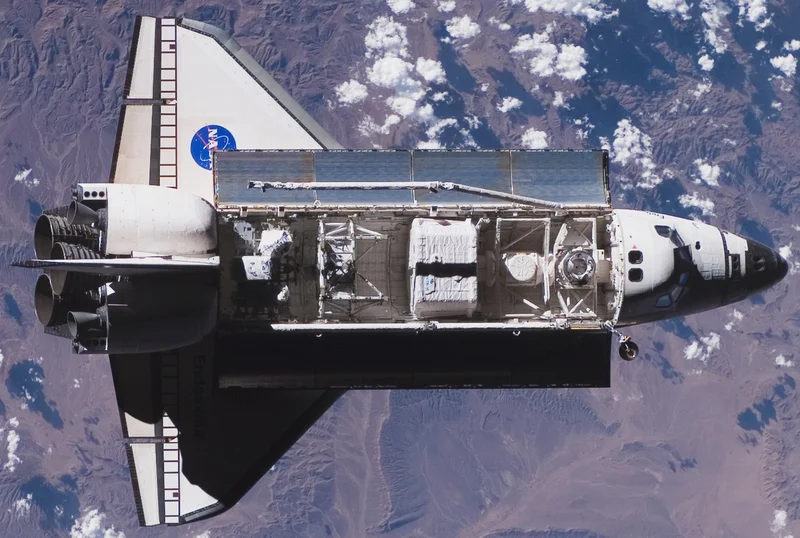
Space Shuttle Endeavour launched on STS-118 mission to the International Space Station. The crew delivered critical components and supplies for ongoing station construction and research operations.
This mission continued the complex international collaboration in space exploration. Endeavour’s successful docking demonstrated the shuttle program’s vital role in space station assembly and maintenance.
Cultural and Arts Events on August 8
1969 – Beatles Create Iconic Abbey Road Album Cover
Photographer Iain Macmillan captured the legendary Beatles crossing Abbey Road at a zebra crossing in London. This simple photograph became one of the most recognizable album covers in music history.
The band took only six shots to achieve the perfect image that would grace their final studio album. The crossing became a pilgrimage site for Beatles fans from around the world.
1988 – Wrigley Field Hosts First Night Baseball Game
Chicago’s historic Wrigley Field hosted its first night baseball game in franchise history. Rain interrupted the contest in the fourth inning, adding drama to this long-awaited milestone.
The Cubs were the last major league team to install lights for night games. This modernization preserved tradition while acknowledging the economic realities of professional baseball.
2008 – Beijing Olympics Begin with Spectacular Opening Ceremony
The 29th modern summer Olympic Games opened in Beijing, China, with an elaborate ceremony. The games continued until August 24, showcasing China’s emergence as a global superpower.
Beijing’s Olympics demonstrated unprecedented scale and organization in Olympic history. The event marked China’s full integration into the international sporting community.
2004 – Dave Matthews Band Tour Bus Incident

A tour bus belonging to the Dave Matthews Band dumped approximately 800 pounds of human waste onto a boat full of passengers. This bizarre incident occurred on the Chicago River, creating an environmental and public relations disaster.
The incident resulted in substantial fines and legal settlements for the band. It became one of the most unusual celebrity mishaps in entertainment history.
Religious and Social Events on August 8
1942 – Quit India Movement Launches Against British Rule
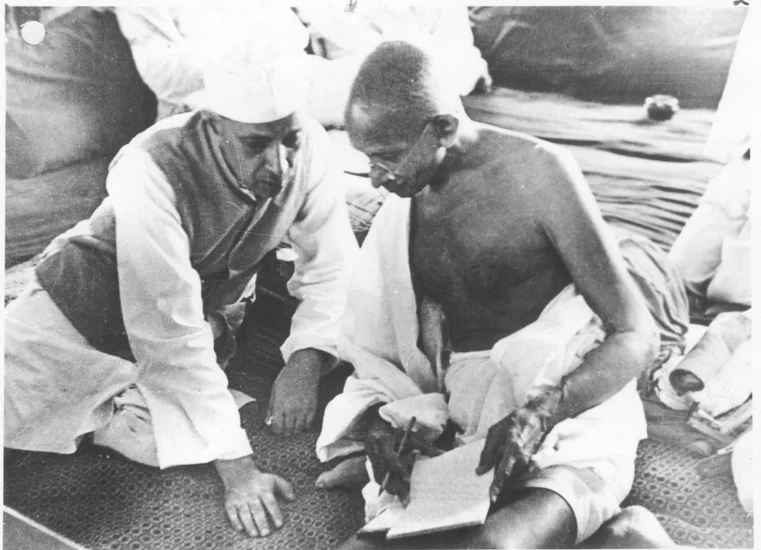
The Quit India Movement began across India following Mohandas Gandhi’s call for complete independence from British rule. Millions of Indians participated in this massive civil disobedience campaign.
The movement marked the final phase of India’s struggle for independence from colonial rule. Gandhi’s leadership inspired nationwide resistance that ultimately contributed to India’s freedom in 1947.
1956 – Marcinelle Mining Disaster Kills 262 Workers

The Marcinelle mining disaster in Belgium claimed 262 lives, including many Italian migrant workers. This tragedy became one of the largest mining accidents in Belgian history.
The disaster highlighted dangerous working conditions faced by immigrant laborers in European industries. It led to improved safety regulations and better protection for foreign workers.
1988 – 8888 Uprising Begins in Burma

Student-led demonstrations began in Rangoon, Burma, demanding democratic reforms from the military government. Hundreds of thousands joined nationwide protests against one-party rule.
The uprising continued for over a month before military forces brutally suppressed the movement. Thousands died in the crackdown, but the movement inspired ongoing resistance to military rule.
Business and Economic Events on August 8
1963 – Great Train Robbery Nets £2.6 Million

A gang of 15 train robbers executed the Great Train Robbery in England, stealing £2.6 million in bank notes. This audacious heist captured public attention and became legendary in criminal history.
The robbery involved stopping a Royal Mail train and overpowering the crew members. Most perpetrators were eventually caught and imprisoned, but the crime entered popular culture folklore.
1967 – ASEAN Founded by Five Southeast Asian Nations
The Association of Southeast Asian Nations was established by Indonesia, Malaysia, Philippines, Singapore, and Thailand. This regional organization aimed to promote economic cooperation and political stability.
ASEAN’s founding represented a new approach to regional diplomacy and economic integration. The organization grew to become one of the world’s most successful regional partnerships.
1991 – Warsaw Radio Mast Collapses
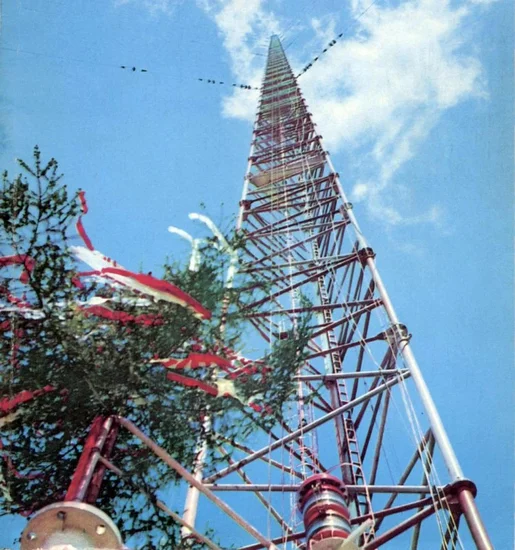
The Warsaw radio mast, then the tallest construction ever built, collapsed unexpectedly. This 646-meter structure had been a symbol of Polish engineering achievement and global communications capability.
The collapse occurred during maintenance work and resulted in no casualties. The mast’s destruction marked the end of an era in radio broadcasting technology.
Transportation and Infrastructure on August 8
1908 – Wilbur Wright Makes First Public Flight in Europe
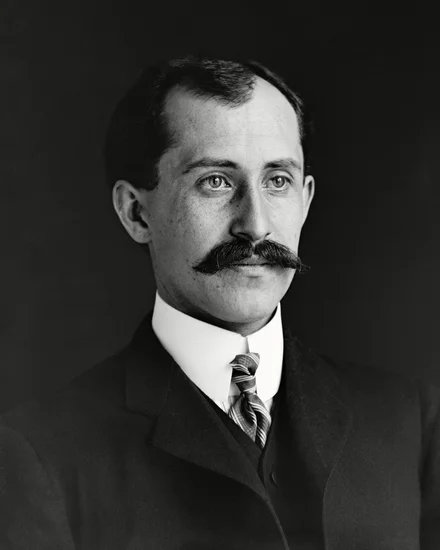
Wilbur Wright conducted the Wright Brothers’ first public flight demonstration at Le Mans, France. This historic flight proved American aviation superiority to skeptical European audiences.
Wright’s demonstration lasted over two minutes and included graceful turns and maneuvers. European aviation pioneers immediately recognized the Wright Brothers’ technological breakthrough and superior aircraft design.
2008 – Czech Republic Train Derailment Kills Eight
A EuroCity express train traveling from Kraków to Prague derailed near Studénka railway station. The accident occurred when the train struck fallen motorway bridge debris on the tracks.
Eight people died and 64 others sustained injuries in this international transportation disaster. The incident highlighted infrastructure maintenance challenges affecting European railway safety.
2009 – Mid-Air Collision Over Hudson River
A Eurocopter AS350 Écureuil and Piper PA-32R collided over the Hudson River near New York City. All nine people aboard both aircraft perished in this tragic aviation accident.
The collision occurred in uncontrolled airspace where pilots coordinate their own separation. This disaster led to improved air traffic control procedures over the Hudson River corridor.
Sports and Recreation on August 8
1903 – Black Saturday Stadium Collapse in Philadelphia
A devastating stadium collapse occurred in Philadelphia, killing 12 spectators during a sporting event. This tragedy became known as Black Saturday due to the scale of casualties.
The structural failure highlighted inadequate safety standards in early 20th-century sports facilities. This disaster led to improved building codes and safety regulations for public venues.
1993 – Powerful Earthquake Strikes Guam

A 7.8 magnitude earthquake shook Guam with violent intensity, causing approximately $250 million in damage. The powerful tremor injured up to 71 people across the Pacific island.
The earthquake damaged critical infrastructure and disrupted daily life for thousands of residents. Guam’s recovery demonstrated the resilience of Pacific island communities facing natural disasters.
2007 – Rare Tornado Strikes Brooklyn, New York

An EF2 tornado touched down in Kings County and Richmond County, New York. This tornado was the most powerful recorded in New York and Brooklyn’s first since 1889.
The rare weather event caused significant property damage but few injuries. Meteorologists attributed the tornado to unusual atmospheric conditions affecting the Northeast United States.
Notable Births on August 8
1901 – Ernest Lawrence, Nuclear Physics Pioneer
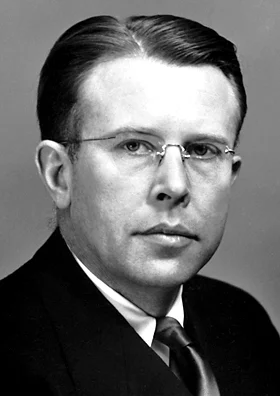
Ernest Lawrence entered the world in Canton, South Dakota, destined to revolutionize nuclear physics. His childhood curiosity about electromagnetic phenomena shaped his scientific career path.
Lawrence invented the cyclotron particle accelerator, earning the Nobel Prize in Physics in 1939. His groundbreaking work laid the foundation for modern particle physics research.
1902 – Paul Dirac, Theoretical Physics Genius
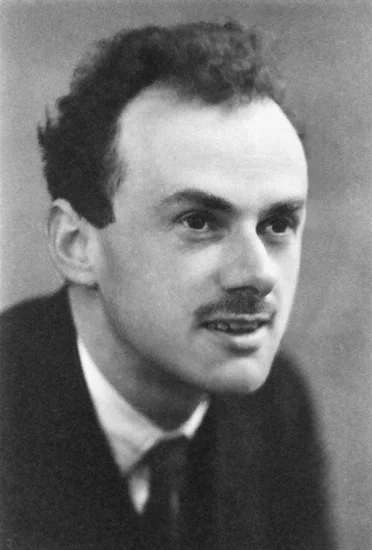
Paul Dirac was born in Bristol, England, becoming one of the most influential theoretical physicists. His mathematical approach to quantum mechanics transformed scientific understanding of atomic behavior.
Dirac’s equation successfully predicted the existence of antimatter before experimental confirmation. He shared the Nobel Prize in Physics in 1933 for his revolutionary contributions.
1937 – Dustin Hoffman, Hollywood Legend
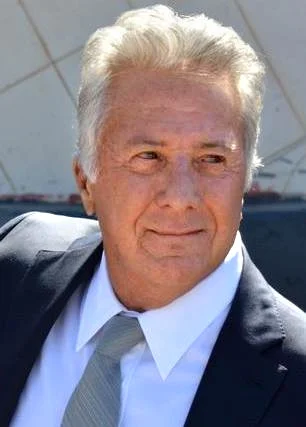
Dustin Hoffman was born in Los Angeles, California, becoming one of America’s most celebrated actors. His unconventional appearance challenged Hollywood’s traditional leading man stereotypes.
Hoffman’s breakthrough role in “The Graduate” established him as a major talent. His versatile performances in dramas and comedies earned multiple Academy Awards and critical acclaim.
1944 – Keith Carradine, Multi-Talented Performer

Keith Carradine entered the world in San Mateo, California, into a family of performers. His artistic talents encompassed acting, singing, and songwriting across multiple entertainment mediums.
Carradine’s career spanned film, television, and music with remarkable versatility. He won an Academy Award for Best Original Song for “I’m Easy” from the film “Nashville.”
1981 – Roger Federer, Tennis Champion

Roger Federer was born in Basel, Switzerland, becoming one of tennis’s greatest champions. His elegant playing style and sportsmanship elevated the sport’s global popularity.
Federer won 20 Grand Slam titles during his illustrious career, setting numerous records. His rivalry with Rafael Nadal and Novak Djokovic defined modern tennis excellence.
1988 – Princess Beatrice, British Royal

Princess Beatrice was born in London, England, as the eldest daughter of Prince Andrew. Her birth continued the British royal family’s tradition of public service and charitable work.
Beatrice pursued education and career opportunities while maintaining royal duties. She became a patron of various charitable organizations focusing on education and young people.
Notable Deaths on August 8
1902 – James Tissot, French Painter
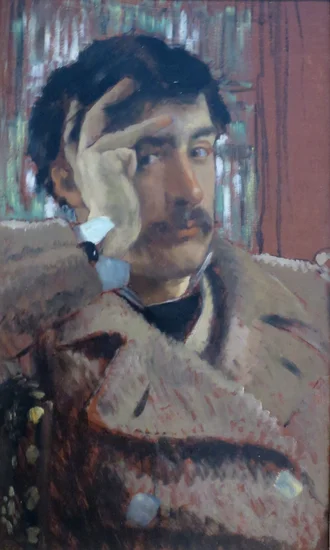
James Tissot, the renowned French painter and illustrator, died at age 65. His elegant society portraits captured the sophistication of late 19th-century European life.
Tissot’s biblical illustrations brought religious themes to popular audiences worldwide. His artistic legacy influenced generations of painters and illustrators throughout Europe and America.
1909 – Mary MacKillop, Australian Saint

Mary MacKillop, Australian nun and educator, passed away after dedicating her life to education and charity. She co-founded the Sisters of St Joseph of the Sacred Heart.
MacKillop was canonized as Australia’s first saint in 2010, recognizing her extraordinary service. Her educational work improved opportunities for children in rural and disadvantaged communities.
1959 – Albert Namatjira, Aboriginal Artist

Albert Namatjira, the pioneering Aboriginal Australian painter, died at age 57. His watercolor landscapes bridged traditional Indigenous art with European painting techniques.
Namatjira became the first Aboriginal person granted Australian citizenship in 1957. His artistic success opened doors for Indigenous artists while preserving traditional cultural connections.
1985 – Louise Brooks, Silent Film Star

Louise Brooks, the iconic American actress and dancer, died at age 78. Her distinctive bobbed haircut and magnetic screen presence defined 1920s cinema style.
Brooks starred in German films that showcased her dramatic range and international appeal. Her performances in “Pandora’s Box” and “Diary of a Lost Girl” remain cinema classics.
2022 – Olivia Newton-John, Entertainment Icon

Olivia Newton-John, the beloved English-Australian singer and actress, died at age 73. Her role as Sandy in “Grease” made her a global entertainment phenomenon.
Newton-John’s music career produced multiple hit songs and Grammy Awards throughout the 1970s and 1980s. Her courage in battling breast cancer inspired millions of fans worldwide.
Holidays and Observances on August 8
International Cat Day
International Cat Day celebrates feline companions and raises awareness about cat welfare worldwide. This global observance encourages adoption and responsible pet ownership.
The holiday highlights the special bond between humans and cats throughout history. Animal welfare organizations use this day to promote spaying, neutering, and rescue efforts.
Father’s Day in Taiwan and Mongolia

Father’s Day is celebrated in Taiwan and Mongolia on August 8, known as “Bā bā Day.” The date was chosen because “bā bā” means both “father” and “8-8” in Mandarin.
This clever linguistic connection makes the holiday particularly meaningful in Chinese-speaking cultures. Families honor fathers with special meals, gifts, and expressions of gratitude.
Happiness Happens Day

Happiness Happens Day encourages people to celebrate joy and spread positivity throughout their communities. This unofficial holiday promotes mental health awareness and emotional well-being.
The observance reminds people to appreciate life’s simple pleasures and share happiness with others. Social media campaigns and community events help spread the message of positivity.
